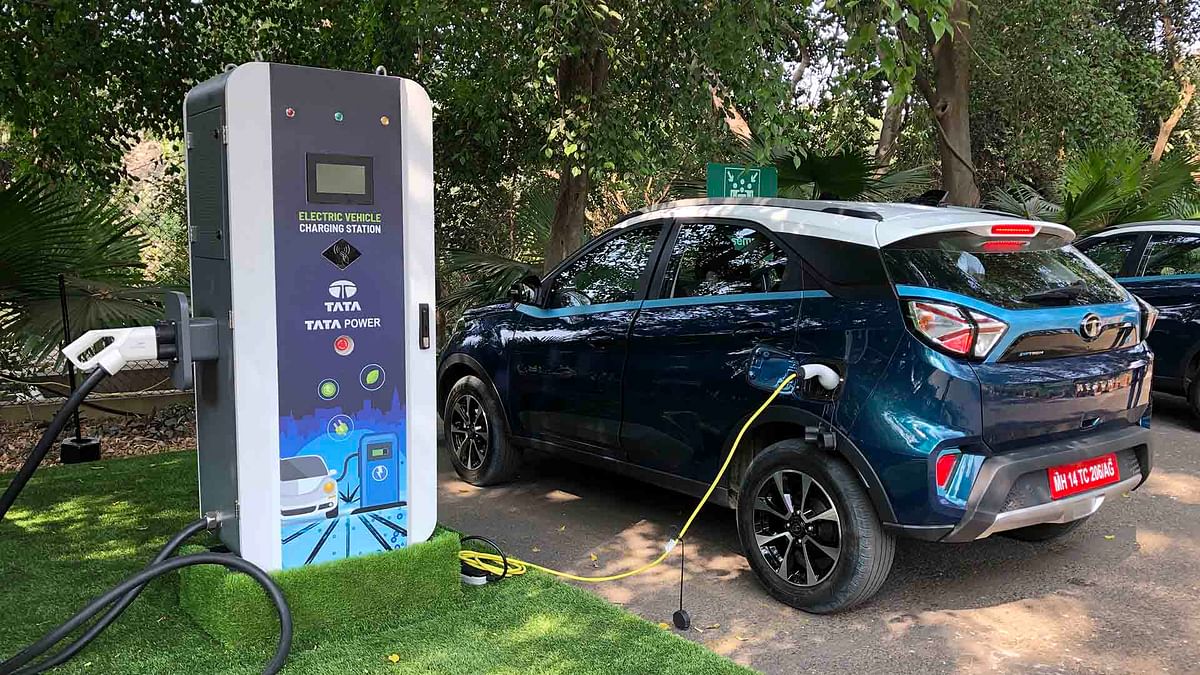Reliance, Mahindra and Hyundai Global among bidders for India's EV battery scheme
Govt. announced a $2.4 billion scheme in 2021

India's electric vehicle revolution received yet another shot in the arm as some top home grown industries, some major carmakers and a few others bid for incentives under the government's $2.4 billion battery scheme announced last year.
Among the big names, the one that stands out is Reliance Industries, India's largest business enterprise with interests in petrochemicals, online retail, telecom and internet services and entertainment. The company, shepherded by Mukesh Ambani, the 11th richest man in the world, is also investing heavily in green energy programs.
Other bidders include South Korean automobile giant Hyundai Motor Company and Mahindra & Mahindra, the pioneer of the passenger electric vehicles in the country, albeit through an acquisition route. Hyundai's wholly-owned Indian subsidiary Hyundai Motor India Ltd. (HMIL) has already announced plans to launch a slew of electric passenger cars in India.
Details of the companies were shared by the federal Indian government via a press statement on Friday, which was the last day for receiving technical bids. India shared plans to set up a 50Gwh battery storage capacity over the next five years and is looking to attract direct investments worth at least $6 billion.
Of late, the EV passenger car segment has shown considerable traction among users as petrol and diesel prices rocketed to new highs. These hikes were disproportionate to the global price of crude and caused by the central and state taxes on petroleum products that account for close to 70% of what the consumer pays.
Companies like Tata Motors have surged ahead with a slew of offerings and have at least ten more in the works. As for the electric two-wheeler segment, total sales over the first 10 months of 2021 crossed 110,000 units, thanks to cost subsidies doled out by both the federal and the state administrations.
An interesting facet of the latest exercise is that even a top infrastructure builder such as L&T has submitted bids for the battery scheme. Under the government's Advanced Chemistry Cell Battery Storage scheme, a manufacturing facility would be up within two years after which the incentive would be disbursed for up to five more years on sale of batteries manufactured in India.
Sign up for breaking news, reviews, opinion, top tech deals, and more.
The scheme seeks to bridge the massive demand for batteries that is concomitant to the production expansion that companies have announced, both for two-wheelers and passenger cars.
Some of the other bidders included Ola Electric, which is facing some challenges to its new electric scooter deliveries as well as existing battery makers such as Amara Raja and Exide Industries. A pre-qualification for the bid was that selected ones will set aside at last 5Gwh of storage capacity and meet some other pre-conditions set by local governments. These required a bare minimum investment of $850 million.
- Ather Energy hikes prices of its EV models
- Hero MotoCorp set to pay $56 million for additional stake in Ather Energy
Want to know about the latest happenings in tech? Follow TechRadar India on Twitter, Facebook and Instagram

A media veteran who turned a gadget lover fairly recently. An early adopter of Apple products, Raj has an insatiable curiosity for facts and figures which he puts to use in research. He engages in active sport and retreats to his farm during his spare time.